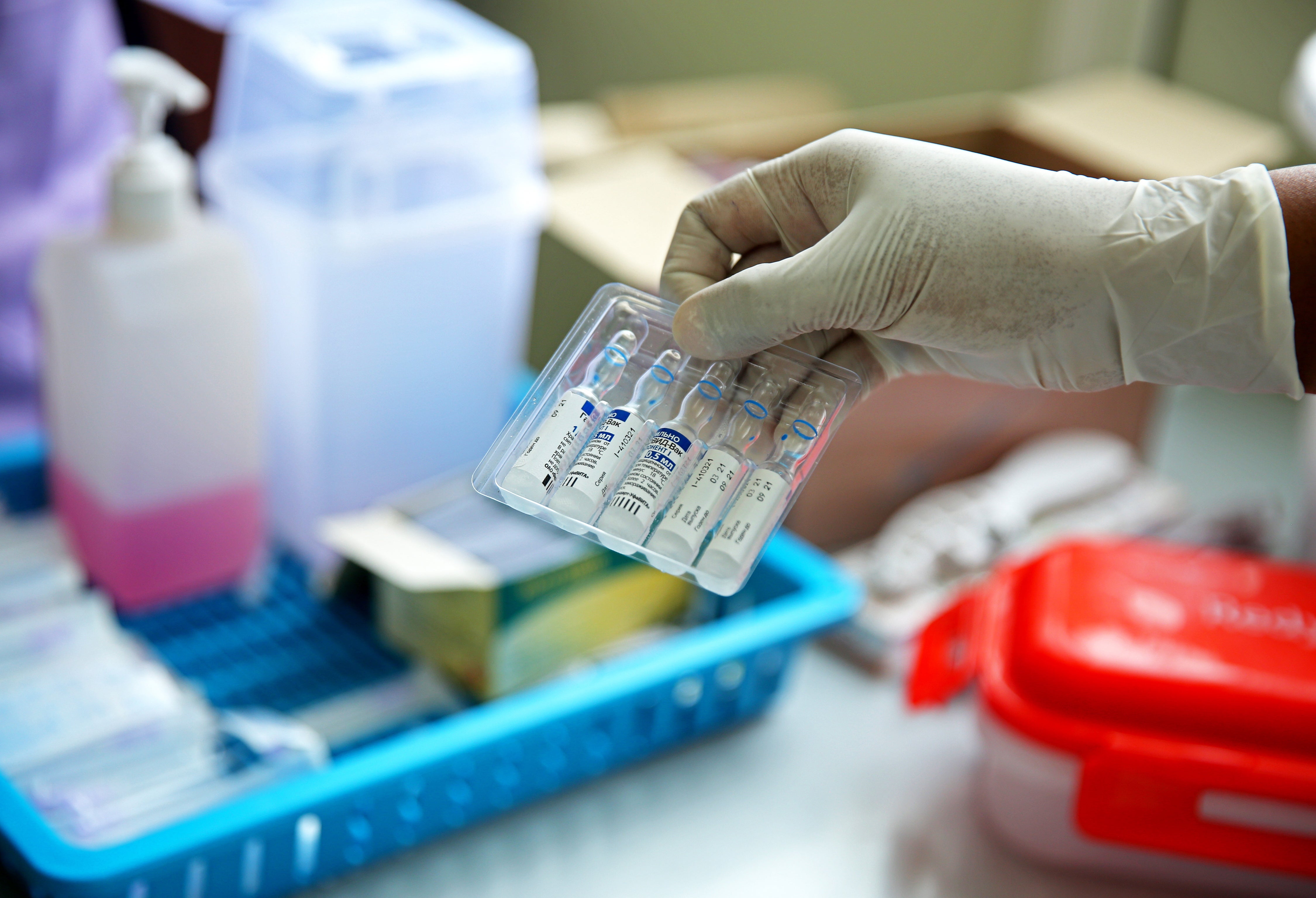Russia’s Sputnik V Covid vaccine ‘less effective’ against Delta variant
‘There is a fall, but the fall is insignificant,’ says developer of jab

Your support helps us to tell the story
From reproductive rights to climate change to Big Tech, The Independent is on the ground when the story is developing. Whether it's investigating the financials of Elon Musk's pro-Trump PAC or producing our latest documentary, 'The A Word', which shines a light on the American women fighting for reproductive rights, we know how important it is to parse out the facts from the messaging.
At such a critical moment in US history, we need reporters on the ground. Your donation allows us to keep sending journalists to speak to both sides of the story.
The Independent is trusted by Americans across the entire political spectrum. And unlike many other quality news outlets, we choose not to lock Americans out of our reporting and analysis with paywalls. We believe quality journalism should be available to everyone, paid for by those who can afford it.
Your support makes all the difference.Russia's Sputnik V Covid vaccine is less effective against the more contagious Delta variant of coronavirus but still provides a high level of protection, developers of the jab said.
Denis Logunov, deputy head of the Gamaleya Centre, was quoted by Russian news agency Tass as saying the effectiveness of the Sputnik V vaccine was 2.6 times lower against the variant first discovered in India.
But the Sputnik V jab is still around 90 per cent effective against the Delta variant, Mr Logunov said, compared with 92 per cent efficacy against the original variant.
“We see that there is a slight decrease in serum activity with regard to the delta variant – it is about 2.6 times for Sputnik V,” he said at a press conference.
He claimed that other vaccines produced outside of Russia had shown a bigger drop in efficacy, adding: “We're optimistic ... there is a fall, but the fall is insignificant.”
He also warned that the low numbers of Russians who are fully vaccinated – around 12 per cent of the population have received both doses – risked allowing the virus to mutate further.
A recent study found that Pfizer jab recipients had almost five times fewer antibodies to protect against the Delta variant and that these antibody levels decreased with time and age.
The study, produced by the Francis Crick Institute and the National Institute for Health Research, noted that after a first dose, Pfizer jab recipients had 79 per cent antibody protection against the original strain, 50 per cent against the Alpha (Kent) variant, and only 32 per cent against the Delta variant. The efficacy increased sharply following a second dose.
Join our commenting forum
Join thought-provoking conversations, follow other Independent readers and see their replies
Comments